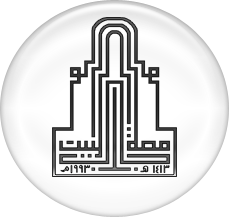| DC Field | Value | Language |
|---|
| dc.contributor.author | أنس مصطفى أبو عطا | - |
| dc.date.accessioned | 2015-09-29T10:06:04Z | - |
| dc.date.available | 2015-09-29T10:06:04Z | - |
| dc.date.issued | 2004-06-06 | - |
| dc.identifier.uri | http://hdl.handle.net/123456789/560 | - |
| dc.description.abstract | الملخص
حَثَّ الإسلام على الزواج، ويسّر أسبابه، وجعل المهر جزءاً من أحكامه؛ ليتحقق به مزيد من التعارف، والتآلف بين الزوجين، والأصل فيه الجواز في كل ما يُعَدّ مالاً شرعاً، دون تحديده، وإن كانت السُنّة فيه التيسير والتخفيف، مع البعد عن المغالاة، بل حرمته إن وصل حد الإسراف، ولولي الأمر السلطة الشرعية، إن أدى ذلك إلى تأخر سن الزواج، أو العزوف عنه، أن يعالج الأمر، بضبط سقف المهر الأعلى، بما يناسب حال الناس، وعُرْفهم الصالح، وذلك ضمن منظومة وسائل عملية أخرى، تحقق المقصود بشكل متكامل شامل
Abstract
Islam strongly supports and facilitates Marriage. The Dowery, which is an integral part of the general rulings of marriage in Islam, aims at enhancing amicability and affinity among the spouses. In principle, the dowery can be anything that is considered to be of financial value in the Sharia, which did not set a limit for that dowery. The Sunnah, however, urges Muslims not to amplify the amount of the dowery, especially if it reaches the levels of excessive increase and extravagance. Hence, the Governor should exercise his legal authority to impose a dowery cap in the case that the increase got to levels that would deter people away from getting married, or if it would seriously influence the average age for marriage. This limit or cap the Governor imposes has to be in accordance with the people?s acceptable general custom, and should be carried out within a framework of other practical means that would achieve the desired goals in a comprehensive and integrated manner. | en_US |
| dc.subject | مقدار المهر وسلطة ولي الأمر في تحديده - دراسة فقهية - | en_US |
| dc.subject | سلطة ولي الأمر | en_US |
| dc.subject | دراسة فقهية | en_US |
| dc.title | مقدار المهر وسلطة ولي الأمر في تحديده - دراسة فقهية - | en_US |
| dc.type | Other | en_US |
| Appears in Collections: | المجلد 12 العدد 3
|

